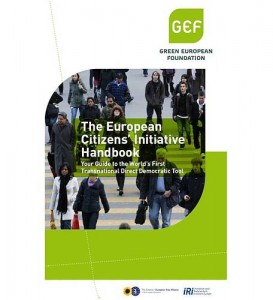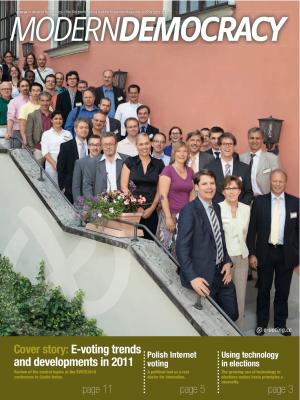The Green European Foundation recently published the first guidebook on the new European Citizen Intiative, which will be a first of a kind: a transnational initiative for citizens within the European Union member states. Download it here.
The Green European Foundation’s newest publication deals with the European Citizens’ Initiative and is a practical guide to this first attempt of creating a transnational direct democracy tool. You can now order a copy of the publication from the GEF office.
A new principle
The new European Citizens’ Initiative (Art.11.4 of the Lisbon Treaty of the European Union) gives one million EU citizens from several Member States a new opportunity forlegislative agenda-setting. With the entry into force of this first ever transnational and direct-democratic tool, EU citizens obtain the same right as the EU Parliament and the Member States to influence the EU Commission.
A new practice
The new European Citizens’ Initiative right can make a real difference. The first edition of this Handbook by the Green European Foundation and the Initiative and Referendum Institute Europe gives you the context and the background you need in order to make an effective entrance onto this new stage of European politics – together with half a billion other EU citizens.
Your new opportunity
This is the first practical Guide to the European Citizens’ Initiative, including a Ten Step Manual for an efficient and successful use of the new instrument, featuring (1) The Idea, (2) The Knowledge (3) The Goals (4) The Design (5) Registration (6) Signature Gathering (7) Dialogue (8) Thresholds (9) Communication (10) Lessons learnt.
Order your copy now
Would you like a copy of the publication? Please send an e-mail to
info(at)gef.eu including a postal address and we will make sure to send you a copy.
The publication is currently only available in English, but German, French and Spanish versions will be soon ready. Please mention which language version you would like to receive.

